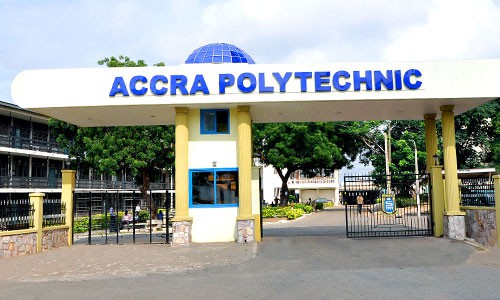
The changing pattern in global training - Accra Polytechnic’s strategic approach
Global trends in education are changing, even faster in the face of declining and inequitable public funding. These trends come with a new demographic future, advanced technology, rethinking accreditation and the need for a tough job market.
Advertisement
The Triple Helix Model for instance speaks about the drift of tertiary institutions from the traditional function of imparting solely knowledge to incorporating a relatively new way of tackling a country’s development deficit – more so developing countries such as Ghana. The fitness of Ghana’s economy and her capacity to innovate is largely tied to not only – the worn-out cliché of – an improved educational system, but the means to reaching this goal. In the light of the foregoing, this article addresses the new trends in education and how institutions such as Accra Polytechnic are responding to these trends.
Trend 1: The collaboration imperative
Universally, institutions have identified the need for collaborations as the spine of research to establish a reciprocally beneficial relationship which will rekindle cooperation and strengthen research, teaching and outreach to promote development, broaden international experiences and promote cross-cultural knowledge and understanding among staff, faculty and students of such institutions.
As international collaborations deepen, many educational institutions have acquired broader connections with industries as a means to strengthen and expand their research. In this vein, institutions have recourse to a direct mutually benefiting partnership with industries abroad, amidst recent budget cuts by the government.
Recently, Accra Polytechnic has increased its collaborative capacity exponentially; this is evident by the number of developments in the domain of students, departments, research and syllabus. Engrained in our academic leadership policy is a deliberate plan to mutually organise conferences, symposiums, workshops and standard development programmes with technologically oriented institutions abroad.
This is to ensure constant sharing of ideas while keeping up with global trends in higher education. In the last two years, Accra Polytechnic has signed memoranda of understanding with over six universities abroad and over ten local industries. The very recent collaboration was between the polytechnic and the Ghana Statistical Service (GSS) on June 9, 2016.
Trend 2: Supporting the working class
A country’s growth, imperatively, is hinged on her workforce and the ability to provide young people with education. This is one smart way that educational institutions are helping to solve their nations’ problems.
The USA for instance, is successfully helping the largest influx of veterans since World War II to return to college and civilian life with more states requiring colleges to give veterans credit for their experience and knowledge gained serving their country.
Other Trending Stories
The Accra Polytechnic has taken a cue from the USA and has introduced programmes that would upgrade the careers of existing professionals. Presently, the premier polytechnic has enrolled over 6,000 part-time students, a number that will definitely increase if conditions allow.
The desire to engage more students from Ghana’s working population was recently reinforced by the acquisition of a 130-acre land for a satellite campus at Samsam, near Accra.
Trend 3: Embracing the demographic future
Tertiary institutions worldwide are judged by how attractive they appear to foreign students. Education in contemporary times is being treated as a global product and if a brand fails to command global respect, it has failed in a major area.
The Accra Polytechnic has thrived to position itself as the destination for students across the region and beyond. The National Water and Electricity Company (NAWEC) of the Gambia and its Civil Aviation Authority (GCAA) have made Accra Polytechnic a partner over the past years.
This growing diversity is Accra Poly’s biggest competitive advantage. We seek to vastly improve the educational outcomes for this new and diverse majority of foreign students.
The Accra Polytechnic has lately created an International Students office to provide our foreign students with unique experiences to match experiences elsewhere. All our international students are just a phone call away from being picked up from the airport.
Trend 4: Ensuring quality assured services
Globally, tertiary institutions are making frantic efforts to standardise the quality of education provided. Accra Poly has strengthened its Quality Assurance Department to review product and services engaged within its jurisdiction. This goodwill created from the quality of operations has led to the increase in applications both locally and internationally.
Trend 5: The use of adjunct staff
This trend may be a little old in developed countries but contrarily it is an incredible way of bridging the faculty-students ratio margin. Adjunct professors or lecturers are non-tenure-track faculty. The USA, for instance, has increased its adjunct staff from 24 per cent to 40 per cent between 1975 and 2011.
With Accra Polytechnic’s proximity to industries and institutions of higher learning, the polytechnic is tapping into the knowledge repertoire of adjunct staff; thus giving the best of faculty for her programmes.
The article is written by the Department of Public Relations, Accra Polytechnic .




